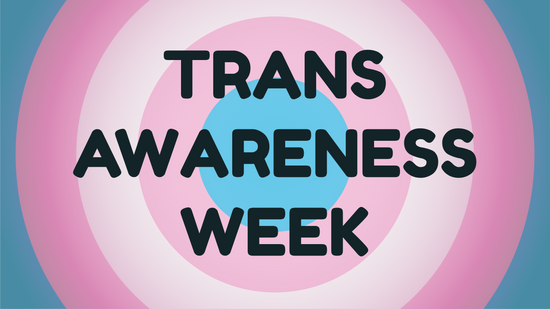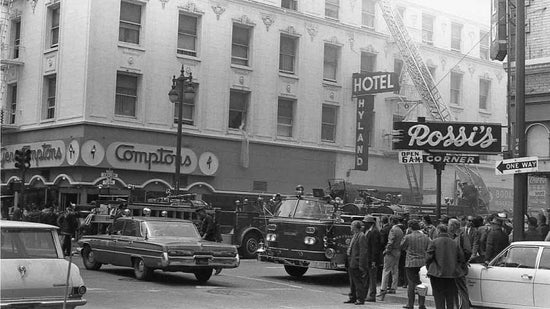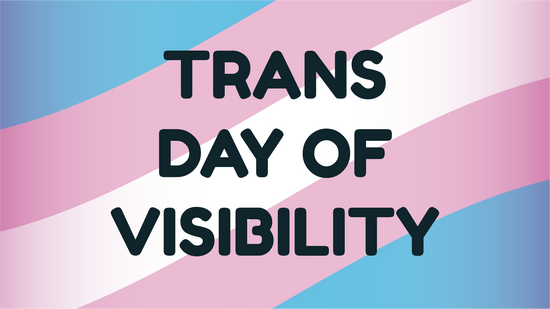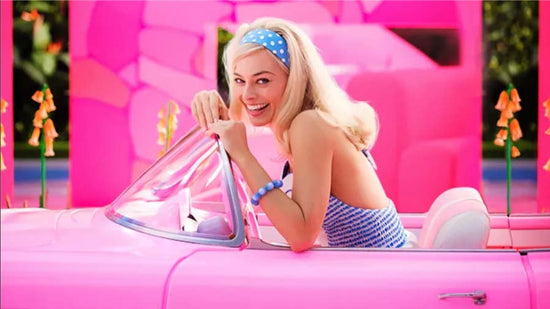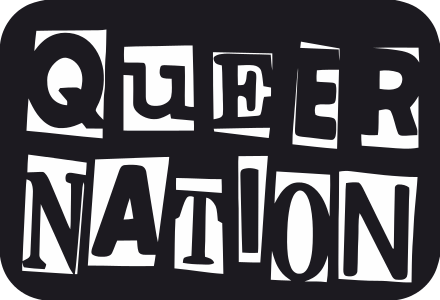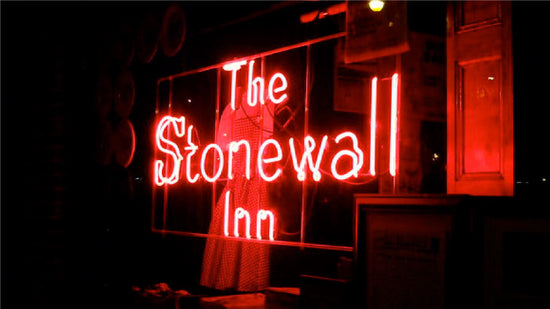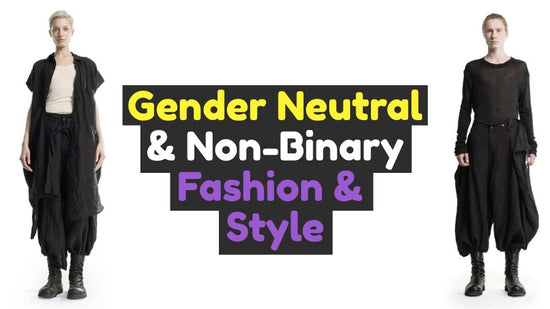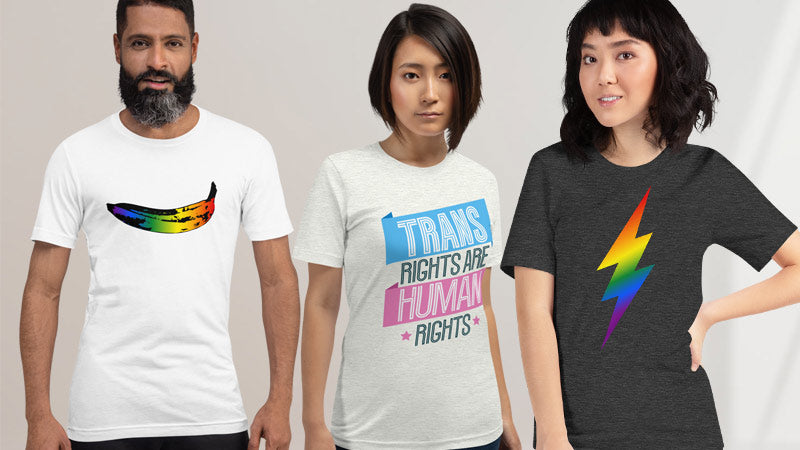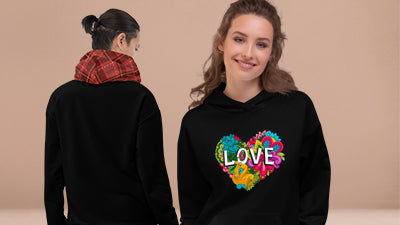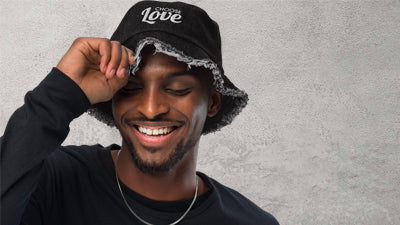Why Trans Awareness Week Is Important

Trans Awareness has never been more critical. We have never faced such an relentless assault of misinformation and hostile propaganda designed to demonise and stir up hate against us. The grotesque Trump regime has been relentless in their efforts to remove our rights and blame us for every crisis. In the UK the government is not far behind, following the biassed Supreme Court Ruling that definded womanhood along gender critical lines.
There are still so many people, in all countries, who know nothing of who we are or what our lived experience is. All they know is the media fed diatribe of lies, designed to alienate ignorant minds.
However, it's also true that we have never been more visible. We have cultural icons, musicians, writers and actors who showcase real trans characters, with authentic lives.
We are starting to get political representation and we are organising into lobby groups, support networks and creating news outlets that allow us to speak with our own voice.
There are positive trans role models for trans kids to look up to. This is why it's different this time.
I Grew Up In A Trans Awareness Vacuum
When I was growing up there was almost no awareness of trans people. Had there been, things would have worked out differently for me and many others. If you have no awareness of something it's hard to define yourself as that, and as a child I was certainly having trouble defining myself. I just knew that I wasn't what everyone told me I was.
I didn’t know what trans was. I certainly wasn't aware of any trans people. And growing up as an only child in an isolated, rural English village I had no positive trans role models at all. None.
Back in the ‘70s and ‘80s no one knew any trans people, because they were all in hiding. So those of us who were trying to figure ourselves out would look to popular culture, to films, TV, music and books to see if we could find anyone like us.
But trans representation was appalling. All the trans characters I saw portrayed on television or in films were either criminals, prostitutes or treated as a joke. Laughed at rather than with. Some were desolate side characters, created to be a convenient victim that no one would really care about when they were mugged, assaulted or murdered. And they were all treated as freaks.

The false narrative of miserable or deceptive trans women just kept being repeated. Reinforcing stereotypical images of trans people as degenerates or pantomime characters. And propagating deep misconceptions by failing in any way to clarify the difference between trans women and cross dressers, with characters very much men dressed as women that I didn’t feel any connection with. In fact the way they were treated scared me.
There Was Always Trans Panic
In so many cases the revelation that someone was trans caused an extreme panic reaction, which presented either as violence or vomiting. Literally showing us that we make people sick, that they feel conned by us and a that natural and perfectly reasonable reaction is to become physically abusive.
Having that reflected back to you says you have nothing to look forward to on your chosen path. My reaction was to recoil into my head and believe I was alone and broken.

Every time I saw a trans person on television they were the freak show. Circus animals paraded around in front of everyone to stare at. To ask invasive, personal and dehumanising questions to on Maury, Gerry Springer or Phil Donahue.
But there was such a weird internal conflict going on while I watched those shows. On one hand I was excited to see trans people. But on the other hand disgusted at how they were being poked at and exploited.
Watching all this during my formative years left an imprint. An indelible one. As an adult I still carry that scarred history of how the world sees trans people. It became a core belief. And we know how difficult it is to change those.
Everyone clings to the rose-tinted history they’re given of their people, be it their country, race, religion etc, that paints their community as positive. The golden past that they can get dewy-eyed about.
Trans people over 40 don’t have that.
Trans Role Models
My first trans role model was Caroline Cossey. When I was 15 one of my best friend arrived back at school one term with her biography that his mother had given him. God knows why she gave it to him, but it was a revelation. I remember reading it and feeling such excitement.
She was (and still is) beautiful, poised, articulate, and suddenly I could see a person that I wanted to be. I felt elated. I understood myself properly for the first time. But her path had been a rocky one.
She was tormented, exposed in the media, driven out of the country by newspapers who saw her as a salacious story. A front page exposé in the tabloids, mocking her, regurgitating all the dirty parts of her life and insinuating her lovers were queers, at a time when that word guaranteed a man would lose his job, friends and be abused in the street.
I got used to hearing the questions she and other trans women were always asked on TV: Are you a woman or a man? How do you have sex? Where do you put your penis? How much did your boobs cost? Those degrading questions became normalised for me. To the point where later in life when they were put to me I would answer them instead of pointing out how invasive and unacceptable they were.
The constant obsession with questions about sex and our body parts objectified trans people. It’s probably why we still can’t escape from the association.

Cultural Evolution Brings Positive Change
After a stuttering start, trans representation has increased so much.
For a few years, while visibility increased, many of the writers and producers were cisgendered. And had no concept of trans lived experiences. So there were still some damaging false narratives. So many times I got excited about a trans character only to be frustrated when they embodied all the dangerous clichés and misconceptions that cisgendered people have of us.
Cisgendered men and women were still being cast in gender diverse roles and in some cases with extremely problematic results. Benedict Cumberbatch in Zoolander 2 is one, and so is Jared Leto in Dallas Buyers Club.
Leto and the writers tapped into every popular misconception about trans women. The character is a trashy, drug-addicted prostitute who spends her time flirting with everyone. More drag queen or cross dresser than trans. A cis man's idea of how men playing at being women would act. And yet he won an Oscar for it. WTAF!

But in 2014 we started to see a step change, brought about by trans writers and producers like Janet Mock, Our Lady J and Lilly and Lana Wachowski. Finally we were getting trans people writing trans characters, played by trans actors. Shows like Pose, Sense8 and Trans Parent gave us the representation we’d always longed for.
The trans actors and actresses that have appeared in the last 10 years have become iconic pioneers and role models to a whole generation, and that’s been wonderful to see. Laverne Cox, Jamie Clayton, Elliot Page, MJ Rodriguez and Trace Lysette amongst many others. They're showing that you can be out trans and successful. Something my mum told me would never be possible.
This is how awareness plays a massive role in trans lives. Seeing trans people being successful shows trans kids a path to a normal life. Tells them that they can choose to be anything and succeed.
The open letter sent to Hollywood in 2018 by the group 5050by2020 calling for greater inclusivity of trans actors and writers was a necessary kick. It said “We believe that when trans people are empowered to help culture makers tell our authentic stories, it will improve how we are treated in the real world.” And truly that is the kind of statement we needed to hear.
Seeing us in film and tv is the spearhead to normalising trans people.
But while portrayals of trans women have been improving from their problematic past, trans men have been almost invisible. It’s really only in the last couple of years that trans masculine characters have begun to appear on screen at all. And that’s a huge problem. We desperately need to see many more trans men on screen. Non-binary characters are even less visible, which is appalling given that there are more ENBY people than trans men and women combined.
It’s no wonder that cishet people think trans men are a new phenomena. That they keep repeating that awful trope that trans is a contagion. We all know this is just transphobic propaganda. Because what's actually happening is that with this burst in visibility people who couldn’t understand themselves, now see themselves reflected and are able to stand up and say hey that's me. Because if you can’t see it you can’t be it.
our trans collection
Trans Kids Are Leading A Revolution
A lot of the change is being led by younger age groups. You have a few pioneering trans kids coming out at school. And that works as a lightbulb moment for others to understand themselves.
Suddenly kids are looking to each other for representation rather than in movies or on television. Social media has become the driver of real people representing.
As someone who was out and proud on MySpace in the early 2000s I had no idea how many people were watching. I’ve been astonished that people still come up to me in clubs or DM me telling me that seeing me back then was part of the start of their journey.
But now Instagram, Threads and TikTok accounts for trans people are huge, Laverne Cox has 7 million followers, and Chella Man has 400k. It’s wonderful to think how many people they’re helping on their journey. And it’s incredibly liberating.

The Problems of 'Passing'
But! Many of the most followed trans women on Instagram are the ones that are cis-passing. In other words they look indistinguishable from cisgendered women. And they dress in a way that plays to the extreme versions of what the patriarchal society thinks women should be.
And that’s simply not the lived experience of most trans women. Which is problematic. Because it means that anyone who doesn’t fit that narrow and rare image of trans woman as slim, sexy, perfectly made up, binary woman becomes open to ridicule and abuse.
Trans women shouldn’t have to comply with male sexual stereotypes of women just to be seen as women. But the clothes and the makeup become a mask to hide behind.
I’ve heard men say that trans women are better than cisgendered women. And it's dangerous nonsense prompted by the fact that most cis women didn’t dress like we did, because we felt the need to push ourselves to feel validated in a male-dominated world. And in doing so we make ourselves into fantasy figures. To be objectified. And that’s not helping. It’s continuing the false narratives of the past. That's not to say that trans women shouldn't be able to look sexy, but we need to start championing trans women for other things.
I hold my hand up and admit that I used the aesthetic the achieve my own goals. Dressing like that on social media became a means to an end, because it got me a following that gave me a platform to reach out beyond the LGBTQ+ bubble and into the homes of straight cisgendered men, so I could tell my story in my own words. To explain what trans women go through. What we have to fight against to live our lives, in the hope that it would help end the objectification. To paint us a real people instead of sex objects.
But it also gave me a chance to talk to trans people still unsure about themselves and about transitioning. To shine a light on what it’s really like so they could make informed decisions.
Awareness Of Real Trans People Is Critical
My point is that trans awareness is critical. We have a great deal of visibility now, and yes we still need more, and visibility of trans people in a wide range of professions, of scientists, of business people, sports people, politicians, astronauts! This will help even more of us accept ourselves.
But the real challenge now is awareness. Not of our existence, but of us as people. Ordinary people who live, love, work and shop everyday existences. We have to dispel the myths and misleading lies that the media and politicians tell. This is what awareness means now.
The next four years in the US is going to be hell for those who are unable to leave or live in a blue state. But the rest of us have a role to play in reshaping the public perceptions of who we are.
Trans Awareness Week is a chance to begin that job of reframing trans people in the public consciousness. Yes we face extremely hostile and, in many cases, unmovable media. But being out, and breaking out of our bubble is one way to do that. People who know a trans person are much less likely to hate us.
So awareness is about pushing back against those lies and telling the truth about who we are. That we’re no threat to cisgendered women, and never have been. That our rights are not in conflict with womens’ rights.
Trans Awareness Week Is An Opportunity
The U.K. media have, for a long time, been institutionally transphobic. Pretty much every one. And with articles about trans people increasing 770% in the last decade it’s easy to see that the impact has been incredibly negative.
And media in the U.S. has following suit. The New York Times has published some appalling articles full of unchallenged lies and propaganda.
We pretty much only get support from the LGBTQ+ media, and the unfailing support from Diva, Attitude, Gay Times and QX has been amazing. But things are changing, and people like Erin Reed (ErinInTheMorning) and QueerAF are creating news by and for trans people. This is a huge step forward.
For too long we have relied on cisgendered people to speak our words. And we still do for the majority of the time. But being able to speak for ourselves and tell our own stories will have a massive impact.
We already have amazing trans journalists like Freddy McConnell, and their voices give us hope. But they're almost drowned out by the numbers of gender critical voices in national media. We need a better balance. We need media owners to be held to account when they publish lies and misrepresent us.
This is why we need events like Trans Awareness Week, Trans Day of Visibility and the newly created Trans History Week. They give us an opportunity to talk about our lived experiences and our needs in board rooms, offices and schools. To tell our stories in our own words, to give young people the language and vocabulary to be able to describe themselves and to show a positive representation of trans people to the world.
Of course positive representation is not the ultimate goal. Complete emancipation of all trans people is the goal. Total equality is the goal.

Some may say that’s a pipe dream. And yes we first need to get to a point where trans people aren’t terrified to go out. But just because something is hard doesn’t mean we can’t strive to achieve it.
But these things will only happen if we all work together. And the first step is for everyone to see that we’re just ordinary people, and to not feel threatened by us.
Happy Trans Awareness Week.


